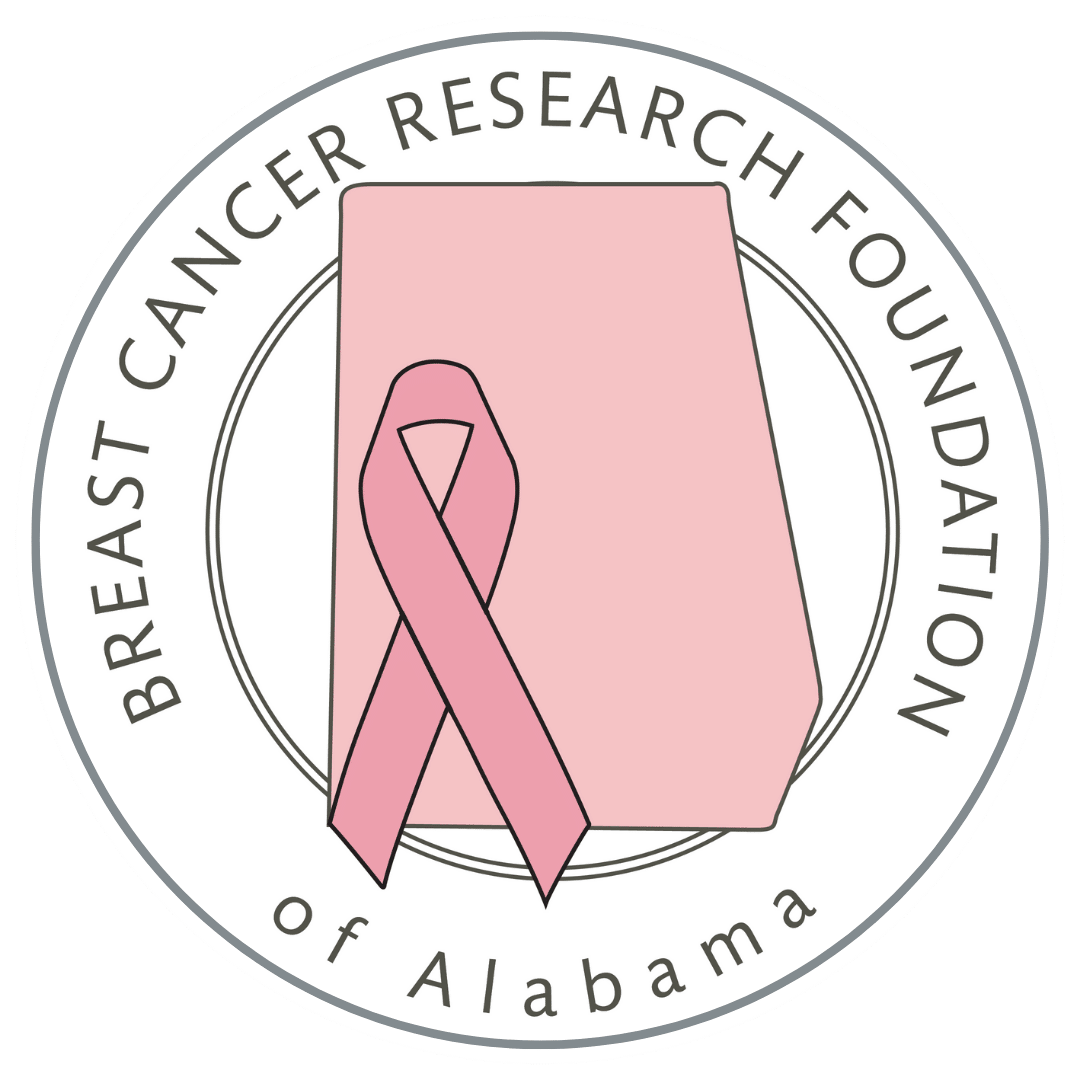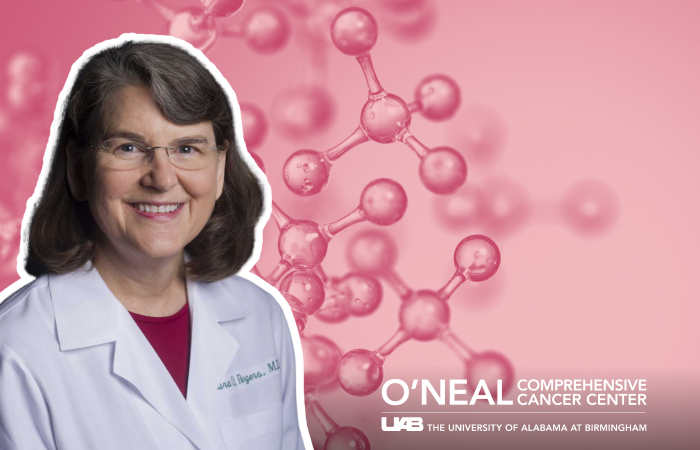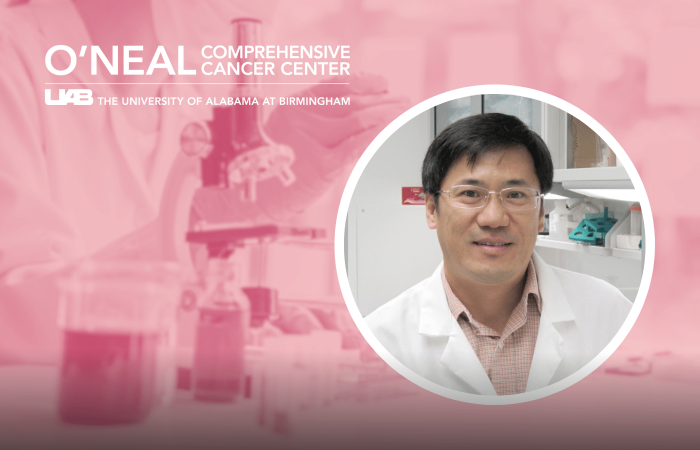Dr. Laura Rogers, Professor in the Division of Preventive Medicine, Department of Medicine at the University of Alabama…

Auburn Researchers Discuss Progress on BCRFA-funded Project to Tackle Triple Negative Breast Cancer
This article originally appeared on Auburn University’s Harrison College of Pharmacy website. Dr. Arnold and Kisselev’s research is fueled by a BCRFA grant.
The Breast Cancer Research Foundation of Alabama funds various research projects across the state. At Auburn, the organization has recently supported the work of two professors in the Harrison College of Pharmacy.
For his study, “Highly Active Liposomal Formulation of Proteasome Inhibitor Carfilzomib for the Treatment of TNBC,” Alexei Kisselev, an associate professor in Auburn University’s Department of Drug Discovery and Development, is seeking to develop a novel treatment for the most-deadly form of breast cancer, triple-negative breast cancer (TNBC), which is characterized by early age of onset, early relapse and aggressive growth.
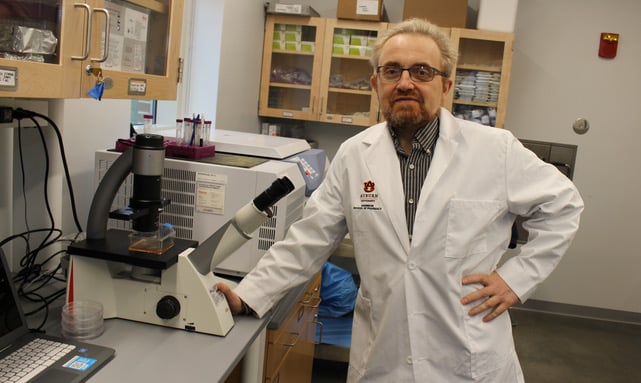
TNBC disproportionately affects African American women and does not respond to common agents used to treat the majority of breast cancers.
“We are working with a class of drugs called proteasome inhibitors, which are approved for the treatment of multiple myeloma, a bone marrow cancer,” said Kisselev. “These drugs kill cells derived from TNBCs in a petri dish at lower concentrations than any other FDA-approved TNBC treatment.
“Unfortunately, this activity has not yet translated to clinical activity because of insufficient tumor penetration by these compounds and due to their toxicity to normal tissues. To solve these problems, we developed a nano-formulation of one of these agents, carfilzomib (Kyprolis), in which it is packed in lipid droplets called liposomes that penetrate tumors but not normal tissues.”
In the preliminary experiment, Kisselev’s team found that carfilzomib blocked growth of TNBC tumors in mice.
By using the BCRFA grant, the team is studying the effects of this formulation on human tumors growing in immunodeficient mice, with the goal of identifying biological markers that will help them to select patients more likely to respond to this drug.
“We will use data obtained with this award to support our applications for federal funding, which we will use to conduct testing in additional patient-derived models, including combination with agents that currently used for the treatment of TNBC, and studies to better understand why TNBC is so sensitive to proteasome inhibitors,” said Kisselev. “Our ultimate goal is to conduct clinical trials of the formulation in human patients.”
Members of Kisselev’s team include his colleagues in the Department of Drug Discovery and Development Professor Rusty Arnold, Associate Research Professor Yulia Maxuitenko and Assistant Professor Amit Mitra, as well as David Redden from the Edward Via College of Osteopathic Medicine in Auburn.
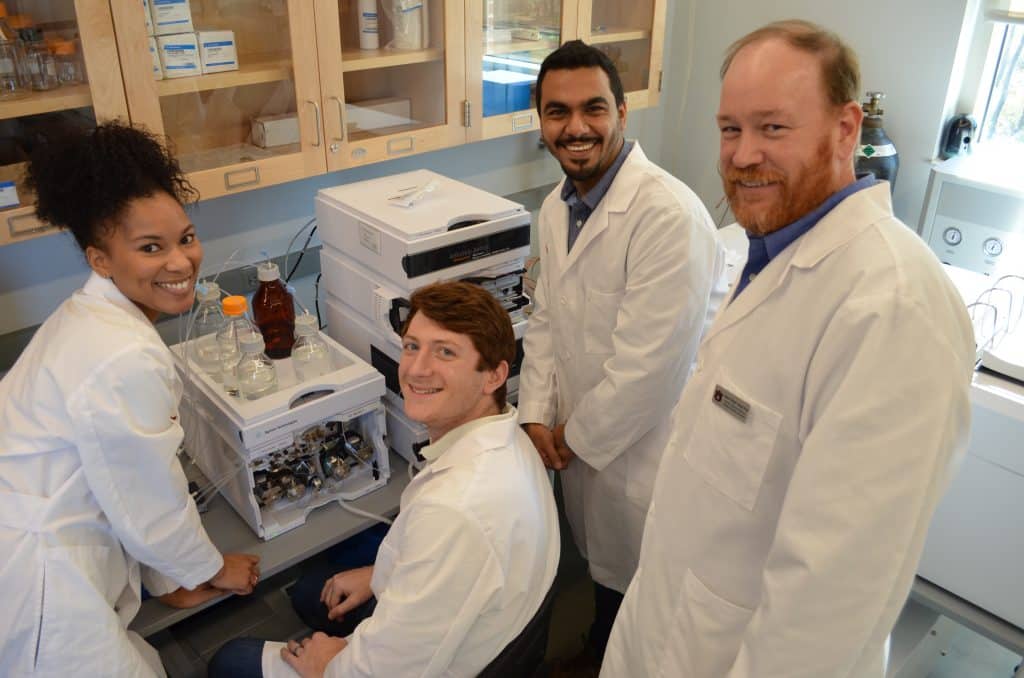
Arnold’s research project funded by the Breast Cancer Research Foundation of Alabama, “Carrier-Free Quercetin Nanoparticles for Overcoming Breast Cancer Drug Resistance,” is a collaboration with Yuping Bao, an associate professor of chemical and biological engineering at the University of Alabama.
The pair seek to find the underlying biological causes and novel cancer treatments to overcome multidrug resistance (MDR) — the phenomenon that cancer cells stop responding to chemotherapeutic drugs during treatment.
Arnold said there has been an increased understanding of drug resistance over the last decade, but without knowing the underlying biological causes and novel treatments, MDR remains responsible for most of the breast cancer treatment failures and deaths. MDR is also believed to be directly associated with breast cancer metastasis and relapse.
An answer may lie in quercetin, one of the major natural flavonoids from fruits and vegetables, as Arnold said it has demonstrated great pharmacological potential in overcoming MDR. However, the clinical applications of quercetin have been limited.
“In this project, we propose to develop quercetin-Fe complex nanoparticles to address those limitations,” he said. “Subsequently, we will determine their effectiveness and underlying mechanisms in overcoming MDR using an aggressive, triple-negative, drug-resistant breast cancer cell line.”
The team is theorizing that nanoparticle formation can increase the stability, improve the aqueous solubility and overcome fast clearance of quercetin. The nanoparticle formation also offers the potential for tumor targeting.
“The key innovation of our project is carrier-free nanoparticle formation, which eliminates the dependence on carrier matrix for quercetin encapsulation and drug release in typical nanocarriers,” said Arnold. “Our overall goal is to develop a carrier-free nanoparticle system based on natural products to reverse MDR of breast cancer cells and improve existing anticancer activity.”
